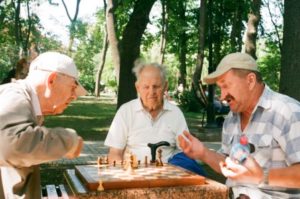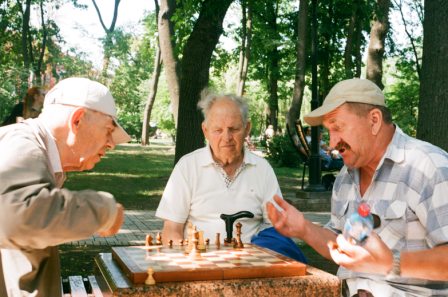Are your energy levels highest in the mornings, with afternoons and evenings leaving you a bit more fatigued? If so, you don’t have to resign yourself to a lackluster social life, too tired to accept invitations to late-night dinners and theater shows.
A healthy social life is essential to good health, staving off depression and loneliness, connecting you with good friends and family, and fostering the positive hormones of laughter. According to a 10-year longevity study of people aged 70 and older, researchers at the Centre for Ageing Studies at Flinders University in Adelaide, Australia, found that people with extensive networks of good friends and confidantes outlived those with the fewest friends by 22 percent. However, to make and keep friends, you need to spend time with them.
The same applies to spending time with family, including your adult children and your grandkids, your siblings and other loved ones. Your adult kids may be concerned if you don’t often accept invitations to late-in-the-day parties or if you leave early because of fatigue. They may misinterpret your early departures and refusals as a troubling sign of declining health.
Save them the worry, and boost your happiness and health levels, by becoming your own social director. Take the reins and plan enjoyable activities timed for the morning, when you’re at your best. Here are some easy strategies to create your new morning social life:
• Tell your kids that you’re interested in socializing more but that mornings are when you feel best, with more energy and less pain. They’ll appreciate that you’re interested in revving up your social life and may arrange their schedules to plan a regular morning activity with you.
• Talk with your friends and neighbors about your plans to schedule some fun, morning get-togethers, and invite them to suggest activity ideas.
• Join a gym. If you already belong to a gym, look at the class schedule for morning water aerobics or senior yoga classes. Talk to a gym manager if there are not any classes planned for early hours. Feedback from gym members is greatly appreciated and often leads to new classes scheduled.
• Organize a walking club. If you live in a senior community or retirement housing, or even in a neighborhood with residents of all ages, print out a poster and flyers, plan a start date, time and location and ask interested folks to contact you with their RSVP. Even if only two people show up at first, others will see your group walking and will join you in later weeks. Keep walks short, even just a few laps around the block, to suit others’ busy schedules.
• Check Meetup.com, as suggested by licensed professional counselor and About.com guide to senior living Sharon O’Brien. At this free site, you’ll find established groups that meet up for a variety of social activities, such as hiking, biking, discussing the arts, knitting circles and more. If there’s not an interesting morning group in your area, you can start one—but always in a public place, never in your home, as your group announcement goes out to strangers.
•Plan a morning book club. A breakfast book club gathers friends at a restaurant, your home or a bookstore and encourages fascinating discussions about different books in your choice of genres.
Revamping your social life can be an adjustment, especially if you’ve been used to a quieter lifestyle, so start slowly. Remember to get your doctors’ clearance for any exercise-based or strenuous activities on your wish list, and be mindful of your health. Ease into new activities and they’ll soon be a joyful part of your lifestyle.
This article was contributed by Sharon Naylor.
 Related Articles & Free Subscription
Related Articles & Free Subscription
How to Slow Down Cognitive Aging
Steps to Stay Independent When You Live Alone







Comment here